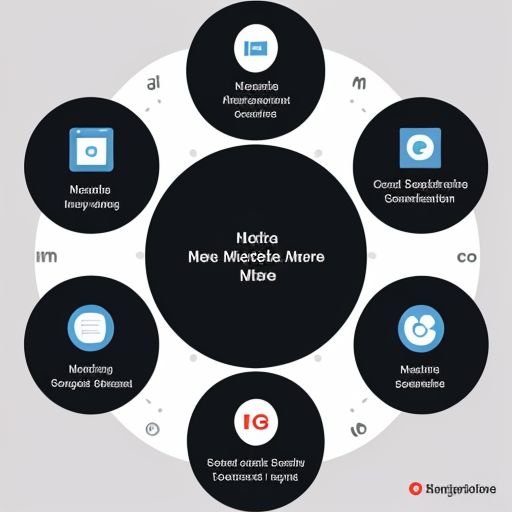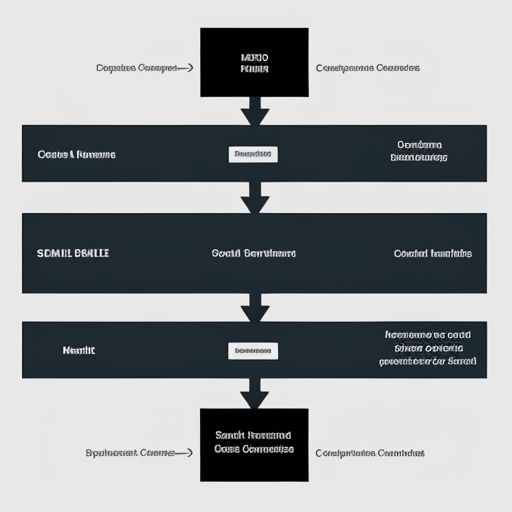In today’s tech-driven world, you hear “platform” everywhere. Social media platforms, e-commerce platforms, gaming platforms – the list goes on. But have you ever stopped to think about the software that powers these digital landscapes? Understanding what platform software is can be surprisingly insightful, even if you’re not a tech whiz.
Think of it this way: a platform software is like the foundation of a house. You might not see it directly, but it provides the essential structure and support for everything built on top.
Defining Platform Software: More Than Just Code
Platform software, in essence, is a type of software that acts as a base upon which other applications, processes, or technologies can be built and function. It’s not a standalone application that serves a specific purpose like a word processor or a game. Instead, it creates an ecosystem where other software can thrive.
Key Characteristics of Platform Software:
- Provides a Framework: It sets the rules and standards for how different software components interact.
- Offers Building Blocks: It provides pre-built tools, libraries, and services that developers can leverage.
- Facilitates Integration: It allows different applications to seamlessly work together and exchange data.
- Enables Scalability: It’s designed to handle growth, allowing more users and applications to be added over time.
Why is Platform Software Important?
Platform software has revolutionized the way we build and use technology. Here’s why it matters:
- Efficiency for Developers: Imagine having to build everything from scratch! Platform software provides ready-made components, saving developers significant time and effort.
- Faster Time-to-Market: By using existing platforms, businesses can launch products and services much faster.
- Innovation and Collaboration: Platforms foster a collaborative environment where developers can build upon each other’s work, leading to faster innovation.
- Seamless User Experience: For end-users, platform software often translates to a more integrated and user-friendly experience across different applications.
Exploring Different Types of Platform Software
The term “platform software” encompasses a wide range of technologies, each serving different purposes. Let’s look at some prominent examples:
1. Operating Systems (OS)
Perhaps the most fundamental type of platform software, operating systems like Windows, macOS, Linux, Android, and iOS, form the bedrock of our computers and mobile devices. They manage hardware resources, provide a user interface, and offer a platform for applications to run.
2. Cloud Computing Platforms
These platforms, such as Amazon Web Services (AWS), Microsoft Azure, and Google Cloud Platform, provide a vast array of computing resources over the internet. Businesses and developers can leverage these platforms to build, deploy, and scale applications without managing physical infrastructure.
3. Content Management Systems (CMS)
CMS platforms like WordPress, Drupal, and Joomla make it easy for individuals and businesses to create and manage websites without needing extensive coding knowledge. They provide templates, plugins, and a user-friendly interface for content creation and publishing.
4. Social Media Platforms
Facebook, Instagram, Twitter – these platforms have become integral to our daily lives. They are built on sophisticated software that manages user accounts, facilitates communication, and delivers targeted content.
5. E-commerce Platforms
Shopify, Magento, and WooCommerce are examples of e-commerce platforms that provide businesses with the tools and infrastructure to set up online stores, manage products, process payments, and handle shipping.
The Future of Platform Software: Trends to Watch
Platform software is constantly evolving, with new trends emerging all the time.
- Increased Focus on Artificial Intelligence (AI) and Machine Learning (ML): Platforms are incorporating AI and ML to offer smarter features, automate tasks, and provide personalized experiences.
- Rise of Serverless Computing: This model allows developers to focus solely on writing code while the platform handles all infrastructure management, leading to increased efficiency and cost savings.
- Growing Importance of Cybersecurity: As platforms become more complex and interconnected, robust security measures are crucial to protect user data and ensure system integrity.
In Conclusion: Platform Software – A Catalyst for Digital Transformation
Platform software plays a vital role in shaping the digital world as we know it. From the operating systems on our devices to the cloud platforms powering global businesses, these foundational technologies enable innovation, collaboration, and efficiency on an unprecedented scale. Understanding the basics of platform software can be incredibly valuable, empowering you to navigate the digital landscape with greater insight.
What are your thoughts on the growing influence of platform software? Share your comments below!







